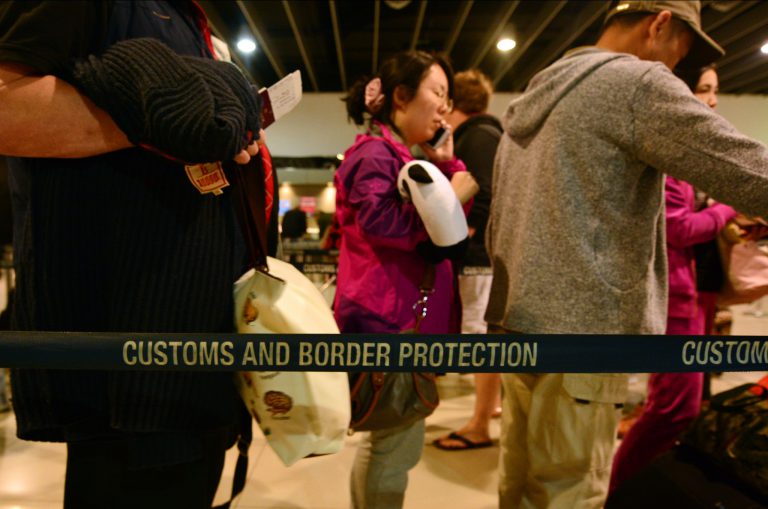
Authorities of Australian immigration have revoked close to 11,000 visas of ‘non-genuine’ students, an increase of nearly a third on the figure from last year.
Between the start of July 2014 and the end of June 2015, The Department of Immigration and Border Protection ceased a total of 10,949 student visas, compared with last year’s figure of 8018 and 8930 for the year ending June 2009; that’s a 30 percent increase in the number of cancellations.
11,000 student visas cancelled by the department of immigration #Australia #estudiarEnAustralia http://t.co/Do0do3MQpx
— Marta Caparrós (@marta_caparros) September 2, 2015
The revocations fall at a pivotal moment in the Australian government’s streamlined visa-processing framework, designed so that international students applying to study in Australia ‘encounter a simpler student visa regulatory environment than currently exists in the country, and more Australian educators will enjoy the benefits of a streamlined visa system.’
The changes come as a result of a recent report titled Future directions for streamlined visa processing, which led to the Australian government developing a simplified student visa framework, due to come into play June 2016 when the current framework expires.
Australia department of immigration and border protection canceled illegal student visas http://t.co/UIaMbzBUOC
— Turning Point India (@Turningpointind) September 2, 2015
The most significant changes to the framework are; the reduction in the number of student visa subclasses from the current eight to two, and the introduction of a single immigration risk framework under which all international students will be assessed, regardless of programme of study.
According to the Australian government, the new changes are, “…designed to make the student visa framework simpler to navigate for genuine students, deliver a more targeted approach to immigration integrity, and create a level playing field for all education providers.”
Figures for the recent visa cancellations released by HES show that Chinese student cohorts were hit hardest, with 1793 visas aborted within the past year. Over 1160 South Korean students have had their visas revoked, followed by a significant number from India, Vietnam and Thailand. The total number of issued student visas grew by two percent, from 292,060 to 299,540.
#Australia #DIBP Canceled Illegal #StudentVisas – #VisaReporter News
http://t.co/i8OYopoZ1x
— Visa Reporter (@VisaReporter) September 2, 2015
Chief Executive of the International Education Association of Australia, Phil Honeywood, claimed that faults in the current system allowed inferior education institutions to exploit the visa streamlining scheme.
Honeywood said: “A key reason for ditching the current streamlined visa procedures is that too many low-quality education providers have been gaming the system, and this has meant students have been attracted to enrolling in such providers as an easy visa pathway to Australia.”
International education sector record high $18.1bn 2014-15 Reduced red tape for Australian student visas http://t.co/o8RKIw4LTk @SenatorCash
— Jamie Lingham (@JamieLingham) September 1, 2015
Earlier this year, The Australian reported a ‘surge’ in the number of ‘non-genuine’ international students counterfeiting English test results and financial documents in order to gain entry to Australian universities, trebling the number of visa cancellations over the course of two years.
The Department of Immigration and Border Protection also claimed to have identified 1000 ‘course hopping’ overseas students who arrived on streamlined visas before transferring to unaccredited institutions.
Australia cancels student visas of 11,000 non-students http://t.co/eY41fO2vF2. Anyone know what our equivalent # would be? (ht @theobhe)
— Alex Usher (@AlexUsherHESA) September 1, 2015
The latest example of an Australian institution mistreating immigration rules came in July, when authorities stormed the offices of a Melbourne education provider after they were accused of falsely enrolling international students, forging fraudulent paperwork and failing to provide adequate education.
It was reported that the students did not attend school, but rather worked as labourers for a company owned by the fraudsters, all the while continuing to pay hefty tuition fees in order to uphold their student status and maintain their visas.
#Borderforce to check visas
http://t.co/GpxFdAijTF
fine way to welcome overseas students to Melbourne 2nd on list:
http://t.co/NwccUFkuhX
— John Englart EAM (@takvera) August 28, 2015
Honeywood states: “Fortunately, the Immigration Department has been able to monitor many of these and has been prepared to cancel visas for non-genuine students.
“However, any quality student destination country should be on top of these non-genuine student cases at the application stage rather than after a visa has been issued.
“Because of effective consultation with the sector, we are hopeful that the new SSVF (streamlined student visa framework) will significantly improve both the quality of providers and the checks and balances on genuine student approvals.”
Christopher Pine, Education Minister for Australia, seeks to shut down illegitimate third-party agencies who recruit international students, incorporating a ‘code of ethics’ and ‘feasibility study’ to an agency framework that is both quality and industry led.
#trafficking victims arrive in Australia on working holiday & student visas and immediately in debt bondage http://t.co/nDKL7cXoZG
— Melinda Jackson (@AustralianImmi) August 27, 2015
Pyne says: “The quality of the educational services that Australia offers to the rest of the world is an asset that we should protect and enhance.
“International education is Australia’s fourth largest export industry overall and our largest services export ahead of tourism, so maintaining our strong reputation for quality is important.”
But with 11,000 students already raging due to the cancellations and many more headed for devastation as the SSVF comes properly into place, how does Australia plan to uphold its reputation as a haven for studying abroad?
Image via Shutterstock.
Liked this? Then you’ll love these…
Fall in Australian Dollar to Benefit International Students
Leading Australian Boarding Schools for International Students







